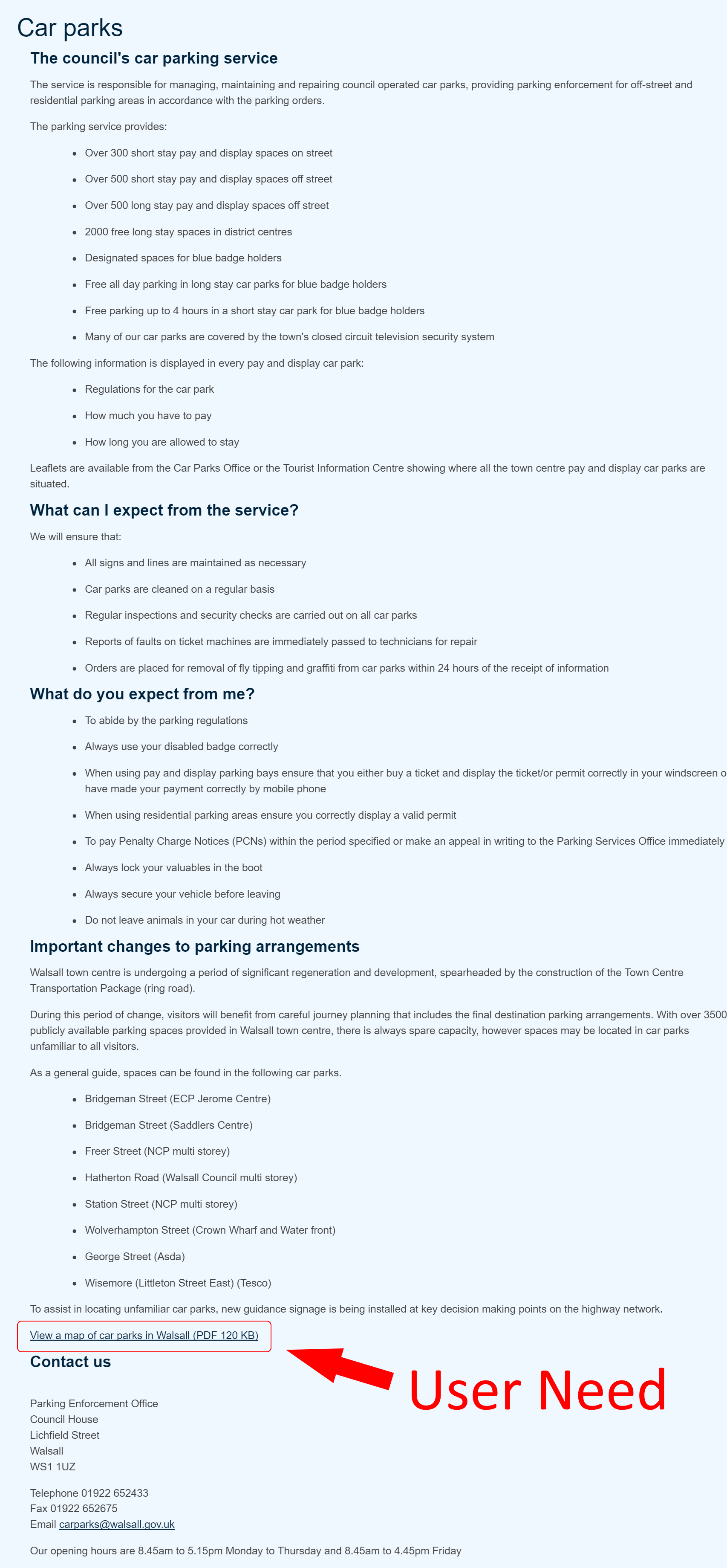You should put the thing the User Needs first on any page. (User Needs Up Front)
There is a well known principle used by journalists when writing a story. The inverted pyramid) illustrates how a story should be prioritised and structured.
- The most important thing is written first
- Then important details come next, adding some extra information to the story
- Finally all the background info, and general details follow - allowing people who care to get all the information they want about the story, while others can just glance and get the main thrust without reading the whole article
This principle transfers nicely to the web; after all most users read no more than 28% of the words on any page they look at, so you want to make sure the thing they need is upfront and easy to find.
Sadly organisations are big beasts with their own agendas and ideas of what is important. More-often-than-not when I am looking at council websites the information the user wants isn’t near the top - its organisational information that floods the screen.

I have seen lots of examples of this across 100s of sites, including:
- Pest control pages, that tell you all you need to know about wasps, before telling you that the council doesn’t actually deal with wasp nests.
- All the details about how great the council’s parking services but neglecting to tell anyone where they can park and how much it might cost.
- Pages detailing how the council service x is there to achieve some goal, or implement statutory functions under the Public Health Act 1925, the Town Improvement Clauses Act 1847 and the Council Corporation Act 1890
It is all too easy to fall into the trap of thinking that the things that are important to you (or your department) are the same as the things that are important to your users.
Sure, failure to implement the Town Improvement clauses Act of 1847 will get someone - likely your boss, and by association you - into trouble, but what your users care about is what they have to do if they want to rename or renumber their house. So putting that upfront and at the beginning of the page is much more useful to people using the website than some 170 year of bit of legislation.
There a many ways to work out what your user needs, some of them more thought than others, like many things people have their favourites and find fault with others, but one thing is certain they all are all better than just assuming that what is important to you is important to them.
So start by working out what your users need and write your content to deal with that need first, sure if you really must - you can tell them about the Public Health Act of 1925, or that wasps build their nest from wood pulp; but do it last, or better still, don’t do it at all.